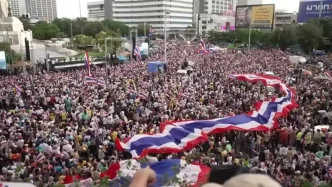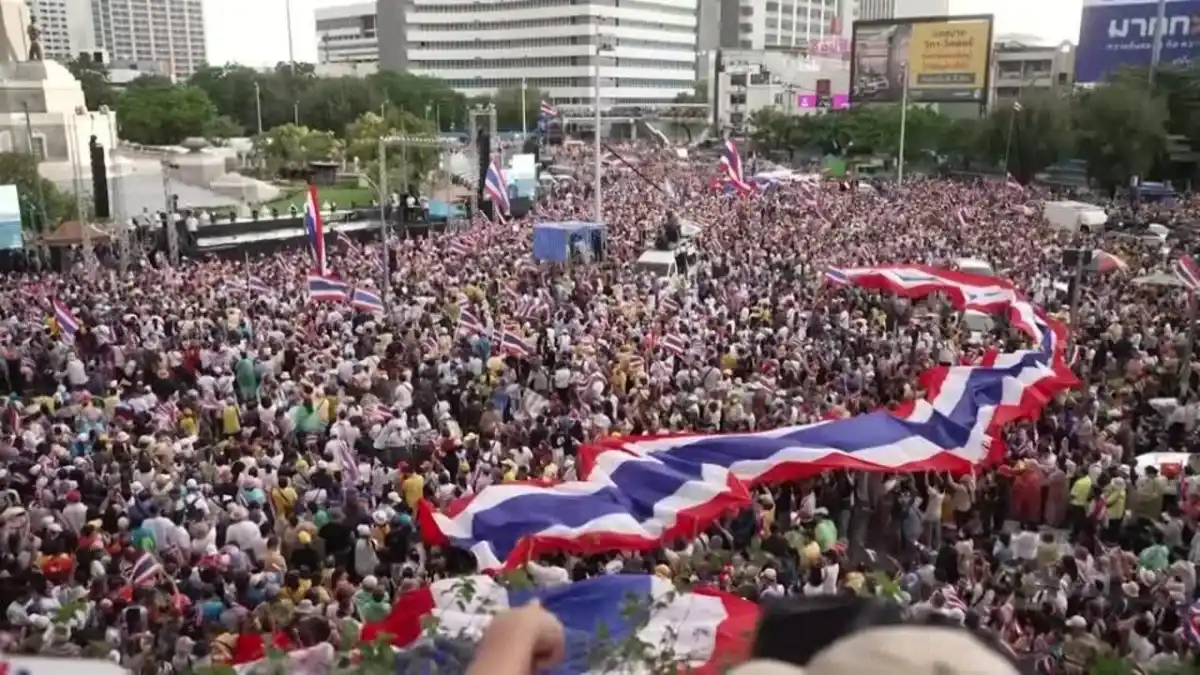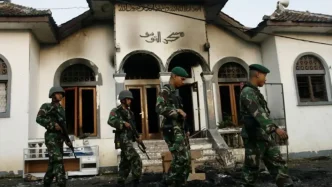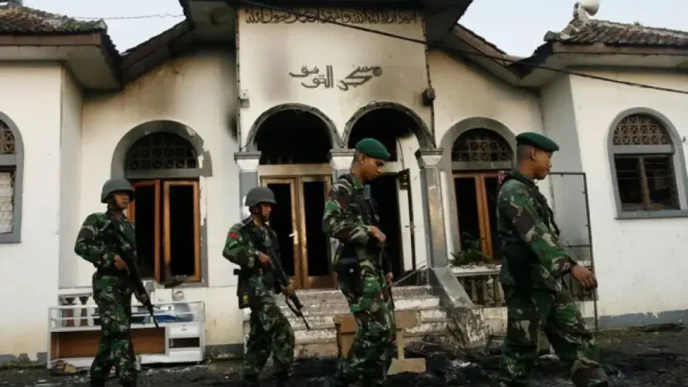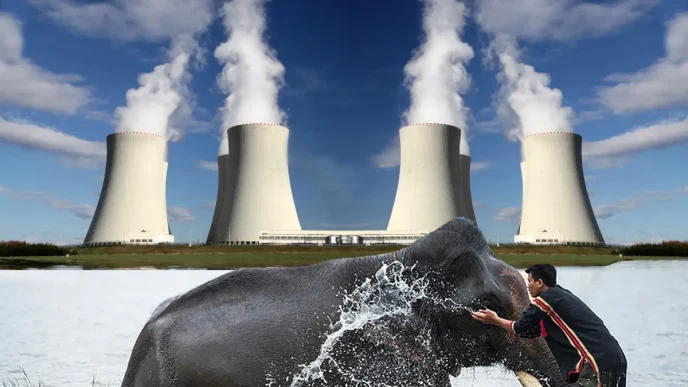Thailand stands at a critical juncture in 2025, with political tensions simmering amid calls for reform and economic pressures mounting in the wake of global uncertainties. As the nation navigates a complex web of governance challenges, public discontent, and international scrutiny, the path forward remains fraught with uncertainty. In Bangkok, the heart of the country’s political and cultural life, debates over policy and power continue to shape the national discourse, raising questions about stability and progress in the coming years.
Political Tensions and Public Sentiment
In recent months, Thailand has witnessed a resurgence of public demonstrations in Bangkok and other major cities, with citizens voicing concerns over issues ranging from economic inequality to perceived limitations on democratic freedoms. The demands for systemic change echo past movements, yet the current context—marked by a post-pandemic recovery and geopolitical shifts in Southeast Asia—adds new layers of complexity. Analysts note that the government faces a delicate balancing act: addressing public grievances while maintaining stability in a region where political upheavals can have far-reaching consequences.
The Thai government has pledged to prioritize reforms, with officials emphasizing efforts to strengthen economic resilience and improve public services. However, skepticism remains among many citizens who feel that promises have often outpaced tangible results. In Bangkok’s bustling streets, from the historic districts to modern commercial hubs, conversations frequently turn to the need for greater transparency and accountability in governance. Local reports suggest that these sentiments are particularly strong among younger generations, who are increasingly vocal about their vision for Thailand’s future.
Economic Pressures and Policy Responses
Thailand’s economy, a cornerstone of its regional influence, is under strain as global supply chain disruptions and fluctuating energy prices impact key sectors like tourism and manufacturing. The country, long a hub for international visitors, has seen a slower-than-expected recovery in tourism numbers, with cities like Phuket and Chiang Mai still grappling with reduced footfall compared to pre-pandemic levels. At the same time, rising living costs have placed additional burdens on households, fueling calls for targeted economic relief measures.
The government has outlined plans to bolster small and medium-sized enterprises, which form the backbone of the Thai economy, through subsidies and tax incentives. Additionally, infrastructure projects in regions like Isaan aim to address long-standing disparities in development between urban and rural areas. Yet, questions linger over the funding and implementation of these initiatives, with some observers pointing to past delays in similar programs. The economic roadmap for 2025 will likely be a litmus test for the administration’s ability to deliver on its commitments.
Regional Dynamics and International Relations
Thailand’s political challenges are not unfolding in isolation. As a key player in ASEAN, the country’s policies and internal stability have implications for the broader Southeast Asian region. Bordering nations like Myanmar, Laos, and Cambodia face their own struggles—ranging from conflict to economic hardship—prompting Thailand to navigate a delicate diplomatic landscape. Bangkok has often positioned itself as a mediator in regional disputes, but domestic priorities could limit its capacity to engage on the international stage.
Relations with major powers, including the United States and China, also remain a focal point. Thailand has historically balanced its alliances, seeking to maximize economic benefits while avoiding entanglement in great power rivalries. In 2025, this balancing act is expected to grow more challenging as geopolitical tensions in the South China Sea and trade disputes continue to shape the regional order. Thai policymakers are keenly aware that missteps could impact foreign investment and trade agreements critical to economic recovery.
Social Movements and the Push for Change
At the grassroots level, social movements are gaining momentum, driven by a diverse coalition of students, workers, and civil society groups. These movements are not monolithic; their demands range from constitutional amendments to environmental protections and labor rights. In urban centers like Bangkok and Chiang Mai, digital platforms have amplified their reach, with social media serving as a space for organizing and dialogue. While specific online content cannot be cited without verification, the broader trend of digital activism is evident in local reporting across trusted outlets.
The government’s response to these movements will be pivotal. Heavy-handed tactics risk alienating large swathes of the population and drawing international criticism, while inaction could embolden calls for more radical reforms. Striking a middle ground—engaging in meaningful dialogue while maintaining order—is easier said than done, especially in a political climate where trust between the state and citizens appears fragile.
Historical Context and Future Outlook
Thailand’s political history offers both cautionary tales and potential lessons for the present. Cycles of protest, reform, and retrenchment have defined much of the country’s modern era, with periods of democratic progress often interrupted by instability. The events of the early 21st century, including military interventions and subsequent transitions, continue to cast a long shadow over public perceptions of governance. Understanding this context is essential for global readers unfamiliar with the nuances of Thai politics, where formal institutions and informal power dynamics often intersect in unpredictable ways.
Looking ahead, 2025 could prove to be a defining year for Thailand. Key legislative agendas, including potential changes to electoral processes and economic policies, are expected to dominate the national conversation. The outcomes of these debates will not only shape domestic priorities but also influence Thailand’s standing within ASEAN and beyond. For now, the government’s ability to address systemic challenges—while fostering inclusivity and dialogue—remains an open question.
The Role of Civil Society and Media
Civil society organizations and independent media outlets play a crucial role in holding power to account, often at great personal and professional risk. In Thailand, journalists and activists have historically faced significant hurdles, including legal pressures and restrictions on freedom of expression. Despite these challenges, their work continues to shed light on issues that might otherwise remain in the shadows, from rural poverty to urban corruption. Their persistence underscores the importance of a free press in fostering informed public debate, even as the digital age brings new risks of misinformation.
International observers, too, are watching closely. Thailand’s trajectory has implications for democratic norms across Southeast Asia, a region where authoritarian tendencies and democratic aspirations often collide. Support for independent voices—whether through funding, training, or diplomatic advocacy—could help sustain the momentum for reform, though such efforts must be carefully calibrated to avoid perceptions of foreign interference.
As Thailand moves deeper into 2025, the interplay between political will, public demand, and external pressures will shape its future. Whether the nation can chart a path toward greater stability and equity remains to be seen, but the stakes could not be higher. For the millions of Thais watching from bustling city streets to remote villages, the hope is for a governance model that reflects their aspirations and addresses their needs—a goal that, for now, hangs in delicate balance.

